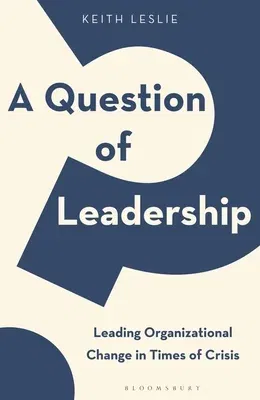Whether planned or unexpected, change presents leaders with their
toughest sustained challenges - regardless of the leader's seniority or
the organisation's size. For many leaders, change brings drama - and the
replaying of familiar stories.
In A Question of Leadership, Keith Leslie provides a wide range of
illustrative case studies derived from both research and his first-hand
experience in the public and private sectors as a former partner at both
Deloitte and McKinsey. Each chapter first provides an engaging narrative
that presents a relatable leadership dilemma, before an analysis of what
works and when (often reaching seemingly counterintuitive solutions),
followed by a selection of research which supports this thesis and,
finally, actionable advice for leaders who find themselves in comparable
circumstances (or may do so in the future).
Alongside their individual takeaways, each of these case studies are
united behind an overarching thesis: the failure of many change
initiatives (research shows that approx. 60-70% fail) is caused by the
leader's inability to fully consider the consequences and magnitude of
the situation. Whether they consider it 'just a game', or they are
'gaming the system', they often fail to recognise the full consequences
of the change initiative. Across business and society, the prevalence
and impacts of such short-sighted mistakes has become more overt than
ever following the onset of the ongoing pandemic.
A Question of Leadership also places an emphasis upon one element of
corporate leadership and change initiatives that is frequently
overlooked yet more important than ever: mental health. The book
provides expert advice on managing mental health (both that of the
leader and their team) within stressful, high-pressure environments.
This is a timely and essential guide for any business leader looking for
the most effective strategies and approaches when it comes to change
initiatives. Keith Leslie explores the corporate consequences of the
worldwide pandemic, and analyses how leaders can adapt and improve to
ensure the continued livelihood and prosperity of their organization and
employees in the wake of crises.













